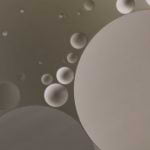
Meeting with Pirjo LUOMA-TOKOI for the International Day of Women and Girls in Science
For the International Day of Women and Girls in Science, Seqens has decided to highlight the career path of female scientists working within the group. Meet Pirjo LUOMA-TOKOI , Manager, Analytical Development at Seqens’Lab
What is your job as Manager Analytical Development?
The analytical method development department, in which I work, focuses on projects for the development of pharmaceutical active ingredients.
As we develop new molecules for our clients, we have to define the methods that quality control will use to verify the conformity of the active ingredient, raw materials and synthetic ingredients manufactured before using them.
The analytical methods department also works in partnership with the chemical development department to characterize the specifications (such as purity, dosage, degree of residual solvents allowed, etc.) of the active ingredient developed. In fact, it is a question of establishing all the parameters that must be compliant for the commercialization of this active ingredient. We therefore provide part of the established data to the regulatory department, which compiles and submits them to the authorities that will issue the sale authorization for the drug.
As head of the department, I manage a team of 17 people. When a new molecule development project arises, my team is also in charge of evaluating the work that needs to be done in order to estimate the cost of the project.
My department works in synergy with several departments such as chemical development, regulatory affairs, the project management team, quality control and the marketing department which is the link with the customer for whom we are developing the molecule.
Have you always wanted to work in the scientific field?
When I was little, I wanted to be a veterinarian, that’s what attracted me to science. It’s a job that requires to have skills in all the “hard” sciences (physics, chemistry, biology…). That’s how I became interested in chemistry and then little by little I moved towards pharmaceutical chemistry.
What is your training and career path?
After graduating from high school, I followed a master’s degree in organic chemistry. During my studies, I had the chance to study in Ireland thanks to the Erasmus program. I then did a thesis in analytical chemistry in a research institute.
Do you have any advice for women/girls who want to join this field?
To be successful in this field, I think you have to be curious and interested in everything. I did many internships in the summers during my university studies, during which I learned a lot. They all have been very useful to me because in my opinion, there is no such thing as a bad experience. You have to be motivated because when you feel like it, it’s easy to learn. Personally, I had a very encouraging thesis supervisor who always supported me in what I was doing. I’m trying to reproduce the same pattern with my team today and it’s all the easier because I work with highly motivated people.
Tell us about a project you are proud of.
One of the missions that carried me through my career was the creation of the analytical methods development department. In the 2000s, health authorities were increasingly demanding analytical data to authorize the commericalization of drugs. In the beginning we were two people. We were able to demonstrate the necessity and importance of analytical data in the development of new active ingredients. The service has grown and today we are 17. We are a highly motivated team and I like to guide them on the different projects we are building together. We are proud when they are successful and when the drugs come to market. It’s a real accomplishment!
To succeed in this field, I think you have to be curious and interested in everything.

